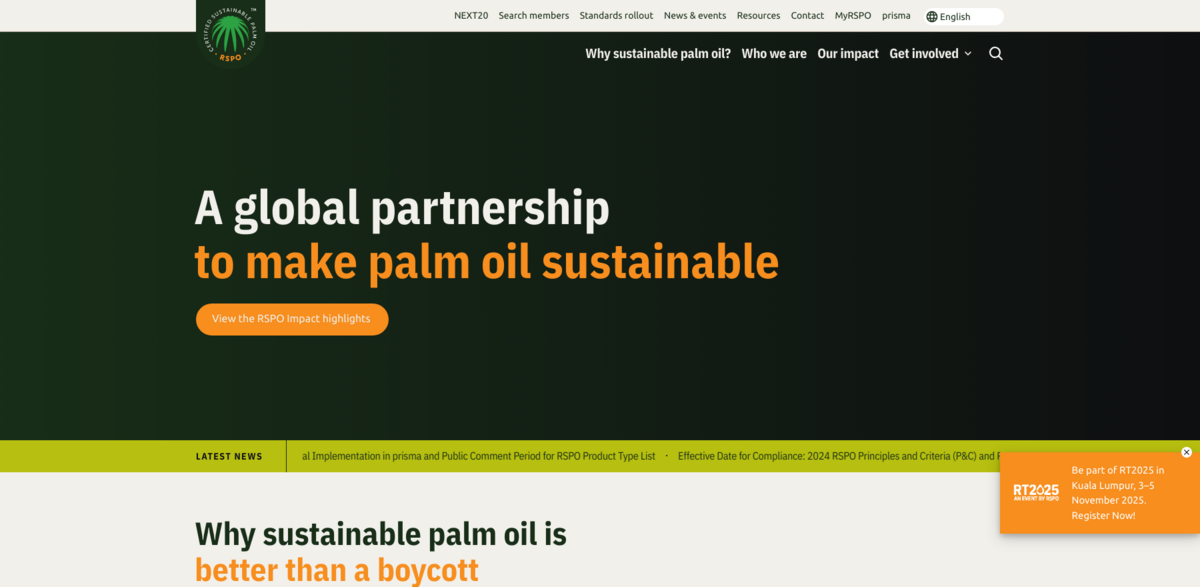What is the RSPO Project?
The RSPO project is a global partnership aimed at making palm oil sustainable. It brings together stakeholders from across the supply chain to develop and promote responsible practices in palm oil production. The goal? To ensure that palm oil is farmed, processed, distributed, and sold in ways that protect animals, the environment, and the people who live and work in oil palm producing countries. It’s about turning palm oil into a force for good.
Main Benefits of Sustainable Palm Oil
Why does sustainable palm oil matter? Here are some key facts that highlight its importance:
- Palm oil is the world’s most versatile vegetable oil, found in everything from cooking oil to soap, toothpaste, chocolate, and even pot noodles.
- Oil palms have much higher yields than other vegetable oil crops, requiring 4 to 10 times less land to produce the same amount of oil.
- This efficiency means less pressure on land use, helping to protect forests and wildlife habitats.
- When grown sustainably, palm oil supports the planet, people, and protected species.
- Switching away from palm oil to alternatives like sunflower or soy would actually increase land use, causing more environmental harm.
The Challenge with Palm Oil
Despite its many benefits, palm oil has a bit of a mixed reputation. When produced irresponsibly, it can cause serious damage—deforestation, loss of natural habitats, and harm to vulnerable wildlife and local communities. This has led some to call for boycotting palm oil altogether. But here’s the catch: boycotting isn’t the answer. Alternatives like sunflower, rapeseed, and soy oils have much lower yields per hectare, meaning more land would be needed to meet demand. So, the problem isn’t palm oil itself—it’s how it’s produced.
A Vegetable Oil Unlike Any Other
Palm oil stands out from the crowd. It’s extracted from both the flesh and kernel of the oil palm fruit, giving it a unique range of properties that make it incredibly popular. Its versatility is unmatched—used in cooking, baking, and as an ingredient in countless supermarket products. Plus, its high productivity means it’s an attractive choice for producers and buyers worldwide. Simply put, palm oil delivers more oil from less land, making it a smart choice when managed right.
A Sustainable Solution
The key word here is “sustainable.” Sustainable palm oil is produced under strict rules designed to protect the environment, wildlife, and human rights. The RSPO project focuses on this—working with all sectors involved in palm oil to promote responsible farming and processing. It’s about balancing demand with care, ensuring that palm oil can continue to be a valuable resource without costing the earth.
Impact on Sustainable Development Goals (SDGs)
- SDG 12: Responsible Consumption and Production
- SDG 15: Life on Land
- SDG 13: Climate Action
- SDG 8: Decent Work and Economic Growth
- SDG 17: Partnerships for the Goals
How to Get Involved
Whether you’re an individual or part of an organisation, there’s a place for you in this global partnership. Joining the RSPO means supporting a future where palm oil is produced sustainably—helping protect forests, wildlife, and communities. It’s a chance to be part of a movement that’s making a real difference, one palm oil fruit at a time.






















